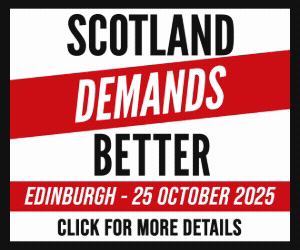The stomach-whirling lurch from optimism to pessimism has been a marked feature of the Covid pandemic.
At every stage of this crisis - over a range of issues, some deadly serious others almost trivial - most of us will have passed from one state to the other and back again almost in the same instant.
Maybe this flux of feelings is just what happens in days like these.
It happened to me again when, as this publication was hurtling towards deadline, I read the Scottish Government’s Programme For Government (PfG).
On first reading this seemed, under the whip of the pandemic, to be a lurch towards more progressive policies.
Indeed, there is a fair bit, from a third sector perspective, to welcome – as many charities have done (see page 8).
Most eye-catching, obviously, was the £25 million announced to help charities survive and recover from the Covid downturn. Also welcome is the extension of the Connecting Scotland initiative..
This is all great – but what about the bigger picture?
It’s here that the lurch from optimist into pessimism happened. It’s easy to be cheered by talk of a greener and fairer recovery (even by talk of another independence referendum, if you’re that way minded) but what does that actually mean – how will it be done? And when you look at the detail there was… very little.
There was certainly very little that was new, that hadn’t been promised before or that didn’t already exist in one form or another. Certainly not that much that can be done between now and the next Scottish Parliament elections – which this PfG was clearly a rehearsal for.
Even the big, and popular, items like a National Care Service (something which a large part of the third sector might have opinions on, incidentally), simply boiled down to a review – with that as an option.
We have been here before with the PfG – in 2017 the SNP, in order to head off an attack on its left flank from then insurgent Corbynism (seems like a million years ago…), announced its most radical ever. Very little of it ever saw the light of day.
This might be down to expedience or impracticality – but as with any nationalist (civic or otherwise) movement, there is an attempt to face all ways. For example, the same authors of radical sounding programmes for government can also use the neoliberal, banker-friendly, deregulatory daydream Growth Commission as their blueprint for what an independent Scotland would look like.
However, swinging from pessimism to a vaguely optimistic position again, it is clear that the door is open enough for charities and civic Scotland to exert enough pressure so that at least some of our ideas help seed policy.
One positive from PfG has been the commitment to explore Community Wealth Building (CWB) models of the kind outlined by Neil McInroy of the Centre for Local Economic Strategy. You can read more about these on page 42 and I recently attended a seminar on this hosted by Glasgow Council for the Voluntary Sector where he spoke persuasively about the potential of CWB. Let’s hope, though, that this isn’t this year’s commitment to Universal Basic Income pilots.
In order that this doesn’t happen, civic Scotland has to set the agenda and become a vanguard for progressive policy – to build up such a head of steam for change that it carries all before it. Even if the
Scottish Government quietly loses interest in CWB, we should be engaging with this movement and others like it.
We need to aggregate our ideas and generalise from our experience and struggles. We need our own programme not just for government – but for building a better world.
Graham Martin is editor of TFN.







